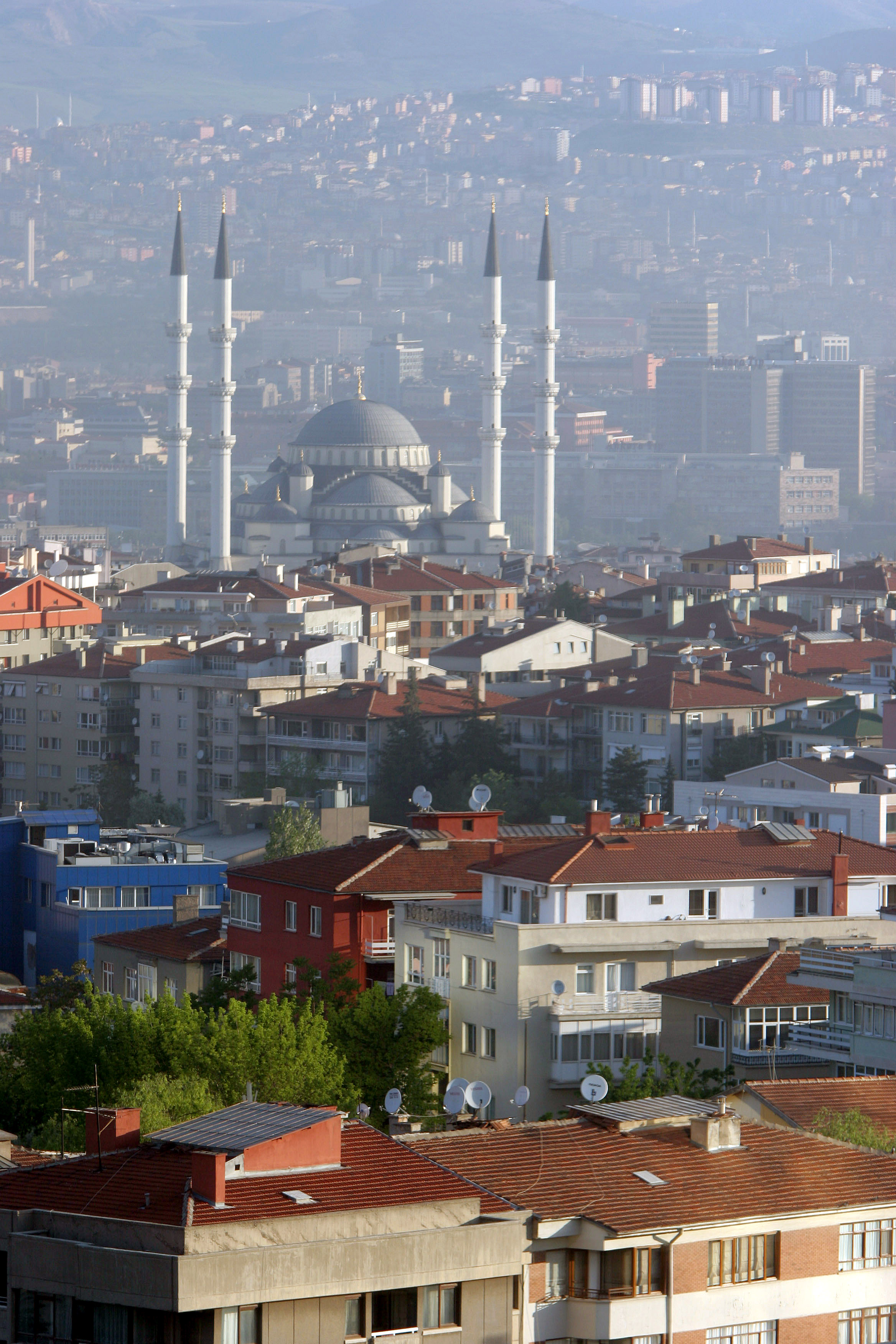ID :
383876
Fri, 10/16/2015 - 12:40
Auther :
Shortlink :
https://oananews.org//node/383876
The shortlink copeid
Russian, Turkish positions on Syria, Ukraine differ, but consent possible - Turkey

MOSCOW, October 15. /TASS/. The positions of Moscow and Ankara on the situation in Syria and Ukraine substantially differ, but consent is possible, Turkish Deputy Undersecretary of Ministry of Foreign Affairs, Ambassador Ali Kemal Aydin said at a conference entitled "Russia and Turkey: The Strengthening of Multifaceted Partnership."
"The issues of Crimea, Syria and Ukraine are the problem topics on which we can’t yet reach unanimity of opinion," Aydin said. "But we sincerely discuss these problems. I think that sooner or later we will be able to find a mutually advantageous solution."
"Besides problems and difference of opinions, there are issues in which we are united, and we should first of all develop these spheres. It is possible that in the future we will be able to reach common viewpoints where we differ now," he said.
Crimea’s reunification with Russia
The Republic of Crimea and Sevastopol, a city with a special status on the Crimean Peninsula, where most residents are Russians, refused to recognize the legitimacy of authorities brought to power amid riots during a coup in Ukraine in February 2014.
Crimea and Sevastopol adopted declarations of independence on March 11, 2014. They held a referendum on March 16, 2014, in which 96.77 percent of Crimeans and 95.6 percent of Sevastopol voters chose to secede from Ukraine and join the Russian Federation. Russian President Vladimir Putin signed the reunification deals March 18, 2014.
Despite Moscow’s repeated statements that the Crimean referendum on secession from Ukraine was in line with the international law and the UN Charter and in conformity with the precedent set by Kosovo’s secession from Serbia in 2008, the West and Kiev have refused to recognize the legality of Crimea’s reunification with Russia.
Work to integrate the Crimean Peninsula into Russia’s economic, financial, credit, legal, state power, military conscription and infrastructure systems has been actively underway since Crimea acceded to the Russian Federation.
Situation in Ukraine
After a coup occurred in Ukraine in February 2014, mass protests soon erupted in Ukraine’s southeast, where local residents, mostly Russian speakers, did not recognize the coup-imposed authorities, formed militias and started fighting for their rights.
In response, Kiev in April 2014 announced the start of "an antiterrorism operation" in east Ukraine, which involved the Armed Forces, the Interior Ministry’s National Guard and volunteer battalions made up of Euromaidan activists, many of whom hold far-right and neo-Nazi views.
Ukrainian troops have been engaged in fierce fighting with local militias during Kiev’s punitive operation, underway since mid-April 2014, against the breakaway territories - the Donetsk and Lugansk people's republics constituting parts of the Donetsk and Lugansk regions of Ukraine.
Massive shelling of residential neighborhoods, including with the use of aviation, has killed thousands and led to a humanitarian disaster in the area.
A Package of Measures on implementation of the September 2014 Minsk Agreements, earlier agreed with the leaders of the Normandy Four (Russia, France, Germany and Ukraine) was signed February 12, 2015 in the Belarusian capital Minsk by participants of the Contact Group on settlement in Donbass. It envisioned an overwhelming cessation of fire and withdrawal of heavy armaments to create a security area in the region at least 50 kilometers wide.
The Russian authorities have repeatedly denied accusations of "annexing" Crimea, because Crimea reunified with Russia voluntarily after a referendum, as well as claims that Moscow could in any way be involved in hostilities in Ukraine’s east.
Situation in Syria
Russia’s Aerospace Forces started delivering pinpoint strikes at facilities of the Islamic State terrorist organization in Syria on September 30. The air group comprises over 50 aircraft and helicopters, including Sukhoi Su-24M, Su-25SM and state-of-the-art Su-34 aircraft. Dozens of terrorist facilities have been hit by Russian aircraft.
On October 7, four missile ships of the Russian Navy’s Caspian Flotilla fired 26 Kalibr cruise missiles (NATO codename Sizzler) at militants’ facilities in Syria. On October 8, the Syrian army passed to a large-scale offensive.
Russia’s Armed Forces act on a request from Syrian President Bashar Assad. The Russian Federation does not plan to take part in ground operations in Syria.
The United States has criticized Russia’s operation against the Islamic State in Syria saying it is not effective. Russia says it only hits terrorist targets in the operation, which has been ongoing on a request from Assad.
According to UN statistics, fighting between Syrian government troops and militants has killed more than 200,000 people and displaced millions since its start in 2011.
An international peace conference on Syria, dubbed Geneva-2, organized by Russia and the United States and designed to negotiate a solution to the Syrian crisis, held in January and February 2014, brought no particular progress.
Read more





